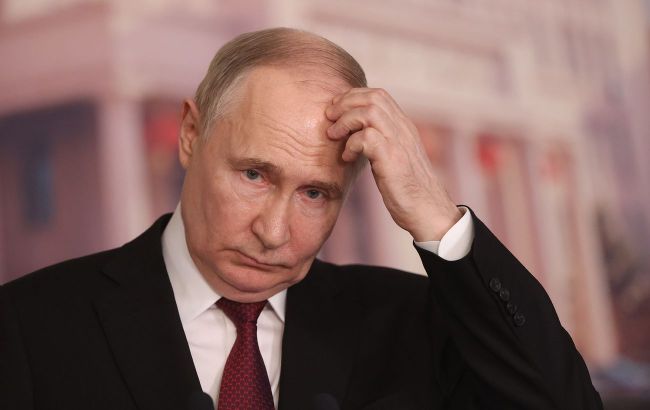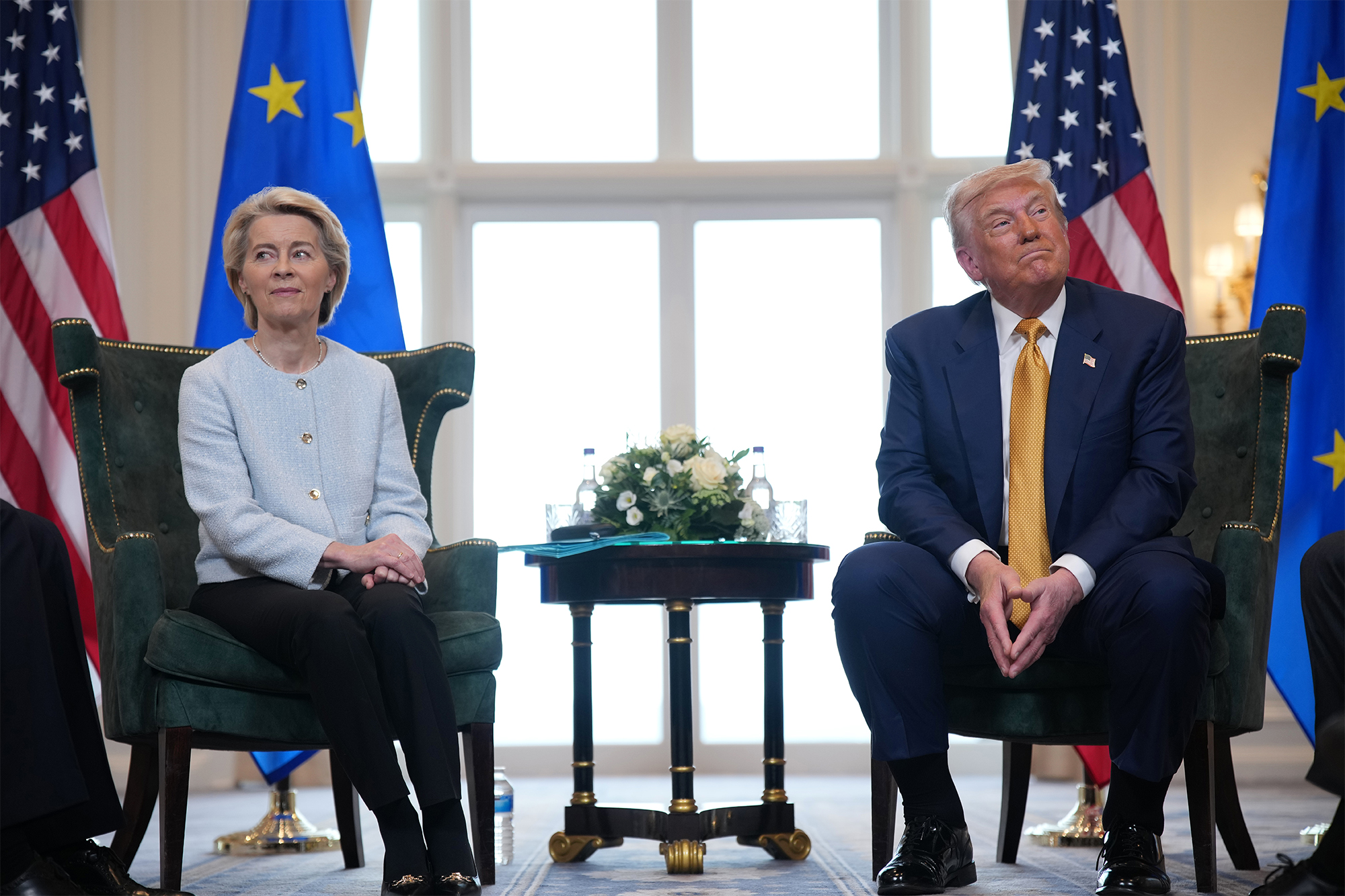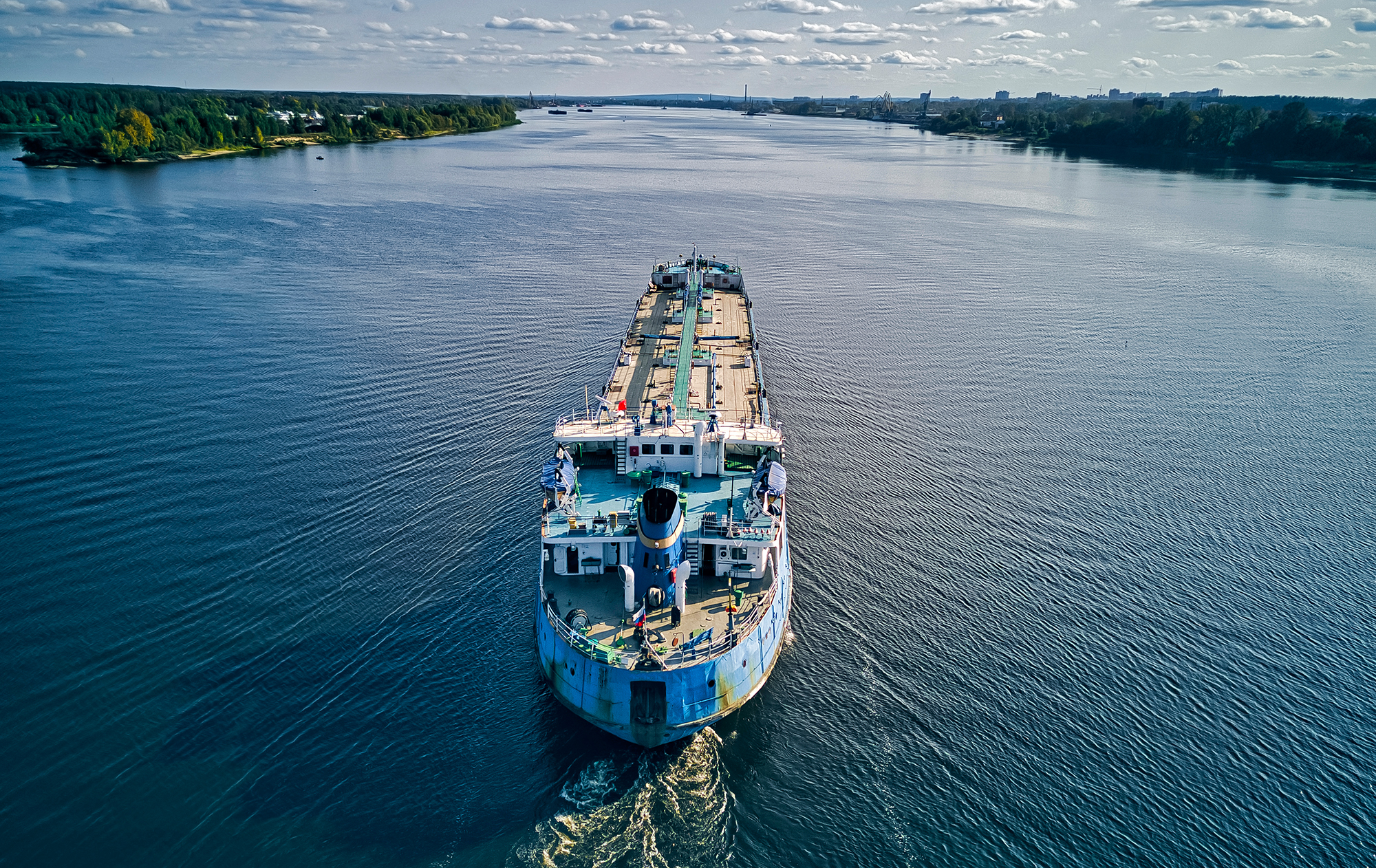Crisis ahead? How new US and EU sanctions will hit Russia's economy
 Russian President Vladimir Putin (photo: Getty Images)
Russian President Vladimir Putin (photo: Getty Images)
The latest US and EU sanctions could accelerate a crisis in the Russian economy and push it into a full recession. In Ukraine, experts believe the potential financial losses for Russia could be massive and may become evident in the coming months.
Read more about the impact of the new sanctions on Russia and the outlook for its economy in the material by RBC-Ukraine.
Key questions:
- How much damage will Trump's latest sanctions inflict on Russia?
- Which pressure points of the Russian economy are targeted by the EU's new sanctions package?
- How long can the Russian economy hold on?
This week, Russia faced the second-largest sanctions blow since the start of its full-scale war against Ukraine. The first came in early 2022, when nearly all of Ukraine's Western partners imposed restrictions on both Russian individuals and entities. Now, the United States and the European Union have approved new sanctions packages almost simultaneously.
Volodymyr Zelenskyy called the introduction of US sanctions the result of his recent meeting with Donald Trump. "The outcome of that meeting is that we now have sanctions on Russia’s energy sector, and there will be no meeting in Hungary without Ukraine," the Ukrainian President said.
New US sanctions
The scale of the US Treasury's sanctions against Russia's Rosneft and Lukoil, adopted on October 22, came as a surprise from President Donald Trump. During his second term, he had long promised to impose tough oil restrictions against Russia but repeatedly avoided doing so under various pretexts.
After the Treasury's decision, the accounts of Russia's two largest oil companies in the United States will be frozen, and American businesses and individuals will be prohibited from doing business with them, The Guardian reported. Secondary sanctions could also target foreign financial institutions and companies that continue cooperation with Rosneft and Lukoil.
"US sanctions open Pandora's box," said Vladyslav Vlasiuk, Presidential Commissioner for Sanctions Policy.
He noted that the sanctions cover not only the main companies, Lukoil and Rosneft, but also dozens of their subsidiaries, including Lukoil Perm, Lukoil Western Siberia, the Kuibyshev oil refinery, Rosnefteflot, and Prime Shipping LLC, which manage tankers, logistics, and port operations. In total, 34 companies linked to Rosneft and Lukoil have been added to the sanctions list.
The restrictions effectively cover all key segments of Russia's oil and gas industry — exploration, production, transportation, refining, trade, and logistics.
The losses to Russia's budget could be enormous. Rosneft accounts for about 40% of Russia's oil output and 14% of its gas production, remaining the main contributor to the federal budget. In 2024, the company paid 6.1 trillion rubles in taxes. Its fleet includes at least 39 vessels.
During the first seven months of 2025, Lukoil transported around 115 million barrels of Russian oil and resold at least 43 million barrels of petroleum products of Russian origin. In 2024, the company contributed approximately 2 trillion rubles to the federal budget.
However, the full extent of the losses from the sanctions remains difficult to calculate, as it will depend on the mechanism of their implementation and possible circumvention measures that may be applied.

European Commission President Ursula von der Leyen and US President Donald Trump (photo: Getty Images)
Besides financial impacts, the sanctions may also have political consequences. Energy Minister Svitlana Hrynchuk noted that the new US restrictions could accelerate the start of peace negotiations. "The US hopes that these sanctions will influence the negotiating positions and the overall situation with talks to end the war," she said.
In any case, the new sanctions targeting major oil companies will raise the cost of continuing the war for Russia and push its economy further from stagnation toward recession.
19th EU sanctions package
The day after the US decision, the European Union approved its 19th sanctions package against Russia. It includes a ban on importing Russian liquefied natural gas (LNG) from January 2027 — a year earlier than previously planned. From 2026, short-term contracts for Russian LNG imports will be prohibited, and from 2027, long-term contracts will also be banned.
According to Vladyslav Vlasiuk, considering the US sanctions, Russia’s financial losses will be enormous, given that Rosneft alone sells $7 billion worth of LNG annually. "Together with US sanctions against Lukoil and Rosneft, I think we will see huge losses from Russian exports in the coming months," Vlasiuk said. The restrictions will also affect Russian banks, financial structures in Central Asia, and several cryptocurrency exchanges.
"We really like the serious block in the package regarding cryptocurrencies and other alternative payment methods used by Russians to bypass sanctions. These are the very forms they use to pay for microelectronics, which we later see in Shahed drones and missiles," Vlasiuk added.
The sanctions also targeted 117 tankers (bringing the total number of sanctioned vessels to 557), oil companies including Rosneft and Surgutneftegaz. "The package does not include Lukoil… I hope that in the 20th sanctions package, Lukoil will be added," Vlasiuk said.
According to Vlasiuk, the financial impact of the sanctions could be felt very soon. "Russia sold $7 billion worth of LNG to the EU annually. Together with US sanctions against Lukoil and Rosneft, I think we will see huge losses from Russian exports in the coming months," the Commissioner said.
From recession to stagnation
Meanwhile, the Russian economy is slowly but steadily moving from recession toward stagnation. In other words, the slowdown in growth could turn into a stagnation and eventual decline.
Russia's military spending is rising — from 4.1% of GDP in 2022 to over 8% expected this year, amounting to more than 17 trillion rubles, nearly half of the federal budget. At the same time, revenues are falling, as the military industry and related sectors are developing predominantly.
Inflation remains high, GDP growth is expected by the government to barely reach 1%, and revenues from oil and gas exports are declining. The National Wealth Fund — Russia's savings — now holds 3.5 trillion rubles, down from nearly 14 trillion at the beginning of the year.
To increase revenues from 2026, VAT is planned to rise from 20% to 22%, which will further drive inflation. If funds are still insufficient, the printing press remains an option. According to Natalia Zubarevich, professor of economic geography at Moscow State University, money printing could be used in extreme circumstances.
Currently, the population is under pressure from higher taxes. In the future, Zubarevich believes this pressure could extend to financial groups, which may be forced to contribute more actively to war financing. Overall, she assesses that the Russian economy is seriously degrading and, under the continued pressure of sanctions, could enter a prolonged period of stagnation or weak growth.

Russian tanker (photo: Getty Images)
According to former Ukrainian presidential adviser Oleg Ustenko, in addition to using the printing press, the Russian Central Bank could "play" with the dollar exchange rate, raising it to a level that the population can tolerate. "They have already tested the exchange rate above 100 rubles per dollar, so it can go even higher. There is some margin, so to speak," Ustenko told RBC-Ukraine.
Overall, he considers the situation in the Russian economy extremely difficult, but believes it could remain manageable for another year or two, provided no critical events occur.
"This could be the case if a black swan does not appear. Such a black swan could be a sharp drop in oil prices, or rather a cut in their oil revenues. That could be a catastrophic blow. Rising social unrest could also become such a blow," Ustenko said.
The Russian authorities are particularly concerned about unrest in major cities — Moscow, Saint Petersburg, and Yekaterinburg — where, by Russian standards, the standard of living is still relatively high.
Ustenko sees stagnation in the Russian economy as practically inevitable within the next 1–2 years. "It has been cut off from access to technologies, scientific developments, and high-tech equipment. Under these conditions, economic growth is severely limited," he noted.
He considers an economic decline unavoidable, as almost only the military-industrial sector is developing in Russia, while other sectors are declining or stagnating. "About 10% of GDP goes to the military-industrial complex, and if you include related sectors, it's twice that. But for now, this is still manageable for Russia," Ustenko said.
According to him, although Russia's budget deficit is substantial at $100 billion, for an economy of over $2 trillion (Russia’s GDP in 2024 was $2.17 trillion), it is not yet critical. "I believe that in the short term — over 1–2 years — Russia will have all the means to maintain its military-industrial machine," Ustenko said.
To achieve this, the Russian authorities may continue to increase pressure on both the population and businesses, while also raising spending on the repressive apparatus, including security forces. Currently, the main priority for the Russian government is to pursue such an aggressive domestic policy that the population perceives global priorities as being in the military sphere rather than in economic or social areas.
Meanwhile, despite all the public bravado from Vladimir Putin, Russia appears to be seriously alarmed by Washington's recent decisions, prompting one of the Kremlin's top negotiators, Kirill Dmitriev, to urgently travel to the United States.
Sources: materials from The Guardian, public statements from politicians and experts, and an exclusive comment from former Ukrainian presidential adviser Oleg Ustenko.

